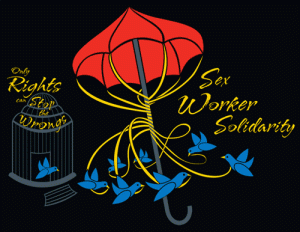DTR. Define the relationship.

Am I getting old? I must be. I’ve heard “DTR” only a couple of times, one of which was today when I was sitting with a client (who, ironically enough, is older than me). For a moment, she could not recall the acronym “DTR” and said “DNR”- we had a real good laugh over that. Do not resuscitate! Do not resuscitate! This relationship is dead!
For a generation that seems to love fluidity and hook-ups and casual relationships and FWBs, this concept of DTR is kind of funny to me.
On the one hand, it is impressive to me that we have this shorthand way of talking about relationships: do it with consent, do it with intention. Talk about your relationships and what is happening in them! What do we each want? What’s okay, what’s not? Where is this going?
On the other hand, I take kind of a semantic issue with “define.” Maybe this is me, five and a half years into the territory of poly/open/ethically nonmonogamous relationships. “Define” connotes something concrete, something final, something definite. Does it not? But relationships are these nebulous, ever-changing creatures. Even this LTR I find myself in has shifting waters.
I, like probably many of us, enjoy the definites in relationships: I come home to this place, and this person lives here with me. I can count on this person for the best cuddles on earth. This person makes me hot in this specific way. This new person is my Boyfriend, and I love that. Some of these things don’t change very often or very much. But simply slapping a label on something doesn’t mean it never will go away or change.
I want the culture of our relationships and sex and love to begin to embrace periodic DTR moments. Every six months, every year? Just having it be common experience for daters to check in with each other, even in LTRs marked by weddings and ceremonies, by joint finances, houses, and kids- it would be nice if adults could look at each other with calm and compassion, and say, Hey baby, let’s continue our DTR conversation. Where are we at now? Where do we want to go? And the kicker- to have it be okay (even if it hard and maybe even heart-wrenching) for one or both people to also ask: Is this still working? Do we still want to have another six months or year of this? I feel like this periodic conversation is more common in the poly world, but still not commonplace.
Maybe I’m down with the DTR, I just want more of it. So that the “defining” remains on a spectrum and within a framework of change, within the world that relationships breathe and move and change.




